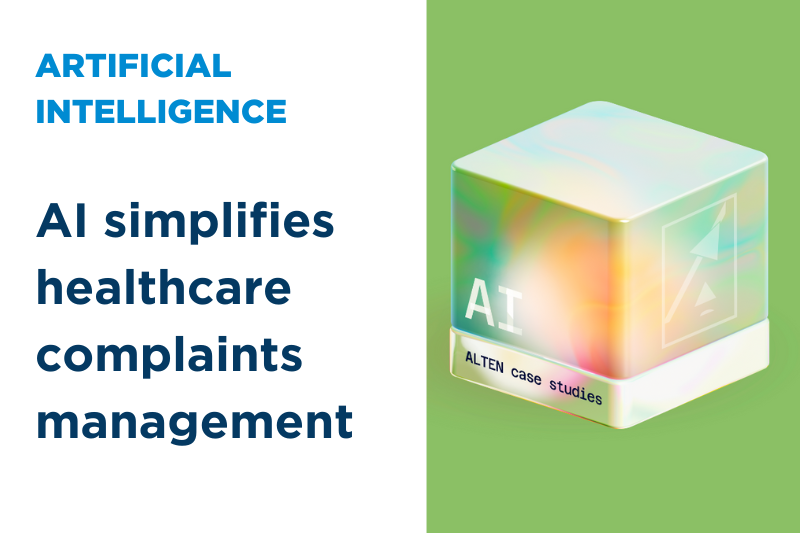


AI-powered triaging of healthcare complaints has proven transformative, reducing staff workloads, standardizing complaint tagging, and prioritizing complex cases. This has not only enabled better resource allocation – it has also improved the quality of responses and of outcomes for patients.
Handling and triaging complaints efficiently is a critical component of quality healthcare. One of England’s largest NHS Trusts, with some 12,000 staff, partnered with Methods Analytics, part of the ALTEN Group, to revolutionize their complaint management system. The Trust faces over 4,500 complaints annually. Managing these complaints manually – reading, classifying, and allocating them for resolution – placed a significant burden on staff, slowing response times and making it hard to prioritize resources effectively.
01 Challenge
Streamlining the complaint management system, enabling the hospital to better prioritize complaints, allocate resources more effectively, and focus on improving patient care.
02 Solution
A web application for automated triaging, standardization, and prioritization of cases.
03 Benefits
Improved resource allocation
Heightened response quality
Operational efficiencies
Greater insights to inform decision making
Reduced staff workload
Enhanced patient care outcomes
04 Key performance indicators
66% improvement in complaint topic identification, enabling faster response and resolution.
Better handling for better results
Methods Analytics’ expertise in applying AI-driven solutions to healthcare focuses on practical tools that can help to solve real-world challenges and improve service quality. For this healthcare Trust, they began by developing a natural language processing (NLP) pipeline in Python to analyze texts and extract key topics. A custom-built text classifier was then used to categorize inputs into complaints, concerns, or compliments. Named entity recognition (NER) was deployed to identify relevant staff, departments, and roles for each entity. A unified medical language system (UMLS) made it possible to enrich these data with detailed contextual information, for example by linking each entity with its alias, type and definition (e.g. nurse, living being). Together, these tools enabled the Trust to streamline its global complaint management process.
Dashboards for better care
To integrate these tools and enable real-time classification and prioritization of complaints, Methods Analytics created a web application. Thanks to this app, the Trust can focus attention on high-priority cases while automating routine processes. The benefits include important operational efficiencies as well as enhanced patient care. In addition, business intelligence dashboards provide in-depth analysis of and insights into complaint patterns and trends.
The toolkit
Methods Analytics used Python to develop a Natural Language Processing (NLP) pipeline for analyzing complaint texts and identifying key topics. A text classifier distinguishes between complaints, concerns, and compliments, using named entity recognition (NER) to identify relevant staff and departments. The identified topics and entities are enriched using a medical knowledge base (UMLS). Power BI enables dashboard development and reporting. The entire solution is integrated into a web application that streamlines the complaint triaging process and provides the user interface.
Focus on what matters
Beyond saving time and resources, the triage assistant empowers the hospital to focus on what matters most: delivering high-quality care and addressing patient concerns effectively. As AI continues to evolve, solutions like this one will pave the way for more responsive, data-driven healthcare systems, improving outcomes for both patients and providers. When efficiency meets empathy, it’s not only a leap in technology but a true advancement in healthcare services.